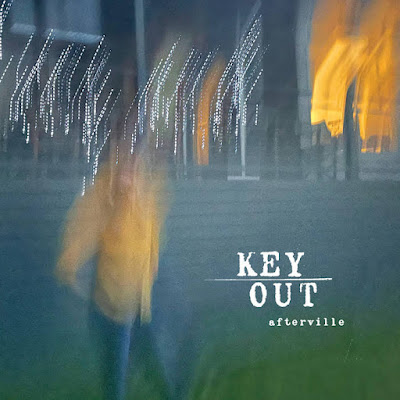Recorded in different locations in their native Australia as the group were under "various states of lockdown", the album is held together by melodic sophistication and a balance between heady and straightforward lyricism. The breezy cool of Yo La Tengo springs to mind as Key Out purvey a charmingly assembled banquet of folk, rock, and pop. The nostalgic "face" plays like a 90's coming-of-age-movie, with quick and sentimental alt-rock melodies. "tree" spins a familiar psychedelic folk yarn musically, but lyrically is quite luring; "hold my tree, I think it's gone, it's been holding on so long."
When Key Out appease their desire for big choruses offset by hooky refrains, like on the lively "drive", they genuinely sound like a band having fun. This sense of exhilaration can be infectious. However when the group aim for punkier notions, the self-recorded sound can sometimes sonically coagulate on the high end, though such songs are usually driven by a brevity that calls for such edge.
On "together", there's such a snap in the up-tempo percussion, melodies and blending elements; warm guitar tones and distant vocals - that you really want to believe in these songs, to root for them. Perhaps it's the personable approach, the confessional lyrics and the clean but rough-around-the-edges fidelity that makes listening to "afterlife" akin to watching a character develop throughout a book or film. Although a big-budget production replete with a fancy studio and a big-name producer would've rendered these tracks ready for the mainstream, there's a spirit in the group's recordings that may have been missed.
Even when "invented" is comfortable with being a forlorn and soppy acoustic paint-by-numbers tune, there's a sense of air in the minimal percussion and subtle instrumentation. As is such on the joyous "small", which features some eyebrow-raising lyrics ("I read the room until I found myself get distracted, and I admit these days that isn't hard to engineer") but an enlivening snare sound, loud and epic and played like a jackhammer, that elevates the track's unassuming melody as it slyly changes key. The closing track, "leaves", starts as a pleasant camp-fire folk diddy before unfolding into stadium-size proportions. It's an honest and open exploration of how love can inspire us to do the unimaginable, like quit smoking or write six-minute prog folk songs.
The cover art for "afterville" features a figure and landscape colourfully blurred by motion, which seems a good choice. These often short songs breeze by in a whirlwind of colour and intrigue, and the album ends succinctly but not hastily. A delightful collection of modest and heartfelt emo folk-rock songs that are likely to burrow their way, however grittily, into your inner world and stay there.
★★★★

